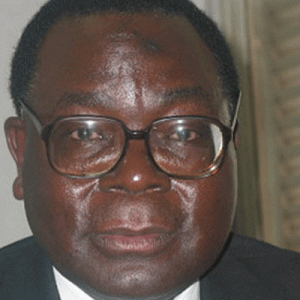The Commercial Court’s Hon Justice Stephen Mubiru has dismissed an application by the Bank of Uganda to drop a case brought against it by 31 shareholders of the defunct Greenland Bank for wrongful and fraudulent closure and sale of the bank.
“The application is incompetent in as far as it concerns matters of facts majorly that require evidence and investigation by this Court which cannot be dealt with as preliminary points of law. The suit is neither barred by limitation, res judicata nor is it frivolous and vexatious,” Justice Mubiru ruled.
Bank of Uganda took over Greenland Bank on 1st April 1999 and put it under liquidation. As part of the liquidation, the Central Bank caused the closure of companies commonly known as the “Greenland Group of Companies” that it said were associated with the bank and had been established with funds from the bank. All the assets of those companies were consolidated into assets of the bank and on 18th October 1999 the Central Bank appointed receivers and managers of M/s FIBA Uganda Limited, the majority shareholder of all those companies.
Concerned by the drawn-out process of liquidation, 31 Greenland Bank shareholders in February 2022, under Civil Suit No. 0108 of 2022, dragged the Central Bank to court seeking a declaration that the continued liquidation of Greenland bank for more than twenty-one (21) years without accountability to them was “irregular, unreasonable and in bad faith”.
They also asked court to order the Central Bank to fully account to them for the entire period and process of closure and liquidation.
Aided by a Parliamentary and Auditor General report which unearthed several irregularities in the sale of their bank, the shareholders also asked court to declare that the sale of secured and unsecured loans of Greenland Bank to a M/s Nile River Acquisition Company, “was unlawful, irregular, fraudulent and in bad faith”. They also asked the court to declare that the sale of loans held in Greenland Bank at a discount of 93% was “irregular, fraudulent and in bad faith”
The 31 shareholders, also asked court to declare the entire process of liquidation process was marred by “massive fraudulent acts” committed by Bank of Uganda officials. They also want court to declare that properties belonging to Greenland Bank, namely Plot 30 on Kampala Road and Plot 66 William Street, were sold below the market value and that the sale was irregular and in bad faith.

Finally, they also asked the court to declare that the consolidation of all companies under the “Greenland Group of companies” and their assets together with the bank’s and subsequent sale was also irregular and in bad faith.
The shareholders are represented by M/s Semuyaba, Iga & Co. Advocates together with M/s Nyanzi, Kiboneka, Mbabazi and Co. Advocates while Bank of Uganda is represented by M/s MMAKS Advocates.
The Central Bank in their preliminary objections via Miscellaneous Application No. 1047 of 2022, said that most of the claims and declarations sought by the Greenland Bank shareholders were either out of time (barred by limitation), or the Greenland shareholders were the wrong suing parties. The Central Bank also argued that some of the matters brought by the Greenland Bank shareholders had already been decided (res judicata) and therefore the entire application was frivolous and vexatious (an abuse of the court process).
Lawyers for the Greenland shareholders maintained that their case was still in time since Bank of Uganda has not brought the liquidation to an end and therefore liquidation was still ongoing. They also argued that the fraud for which they were suing the Central Bank only came to light during the 2018 special audit by the Auditor General and the subsequent Parliamentary Committee on Commissions, Statutory Authorities and State Enterprises (COSASE) inquiry in 2019 and was therefore still in time.
“The limitation period only starts to run the day fraud is discovered and discovery of fraud is an exception to the limitation of six years,” the lawyers argued.
In his ruling, Justice Hon Justice Stephen Mubiru declined to dismiss the case brought by the Greenland Bank shareholders merely on technicalities and said there were major facts that needed to be established by the court.
He also ruled that the issue of determination of whether the particular case was limited by time, was also yet to be determined by the court and therefore couldn’t be admitted as a preliminary objection.
“In conclusion, it is only the preliminary objection regarding the respondents’ claim in respect of 10 the seventeen corporate entities associated with the 2nd applicant (Greenland Bank) that has been sustained. Since the determination of the issue of limitation in this case in respect of the rest of the claims is not a pure question of law, it cannot be decided as preliminary issue. The rest of the objections, therefore, stand overruled. The costs of the application shall abide the outcome of the suit,” concluded Justice Mubiru.
